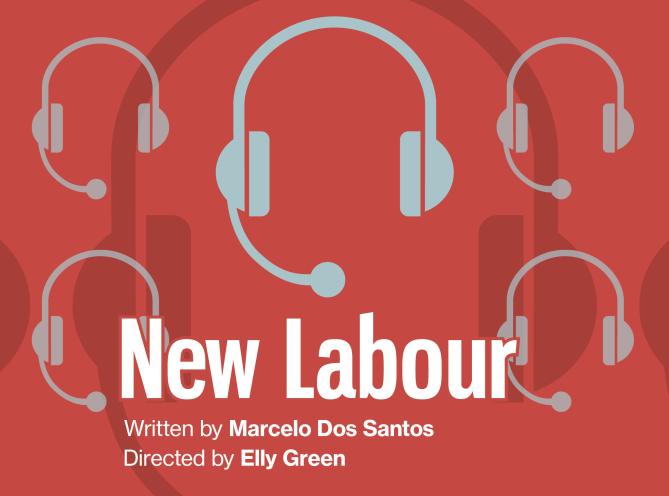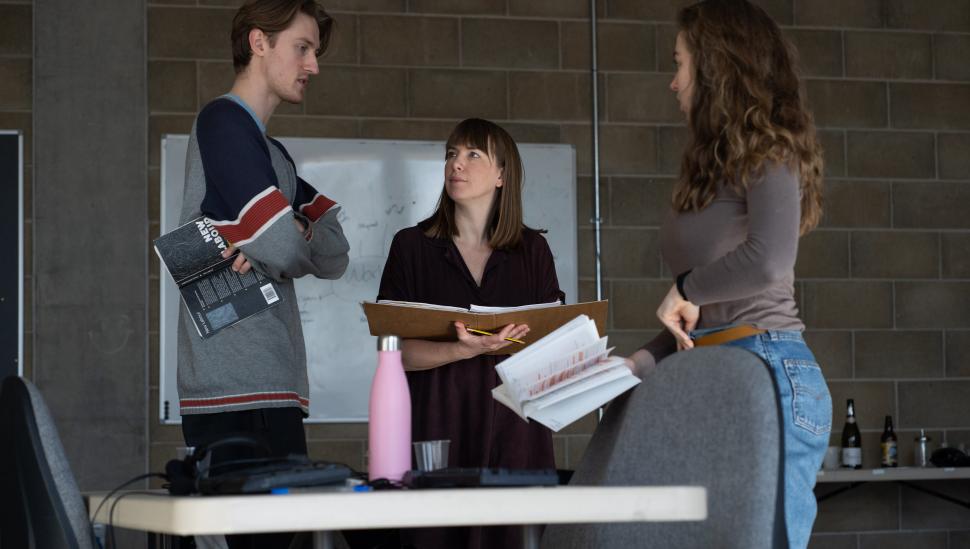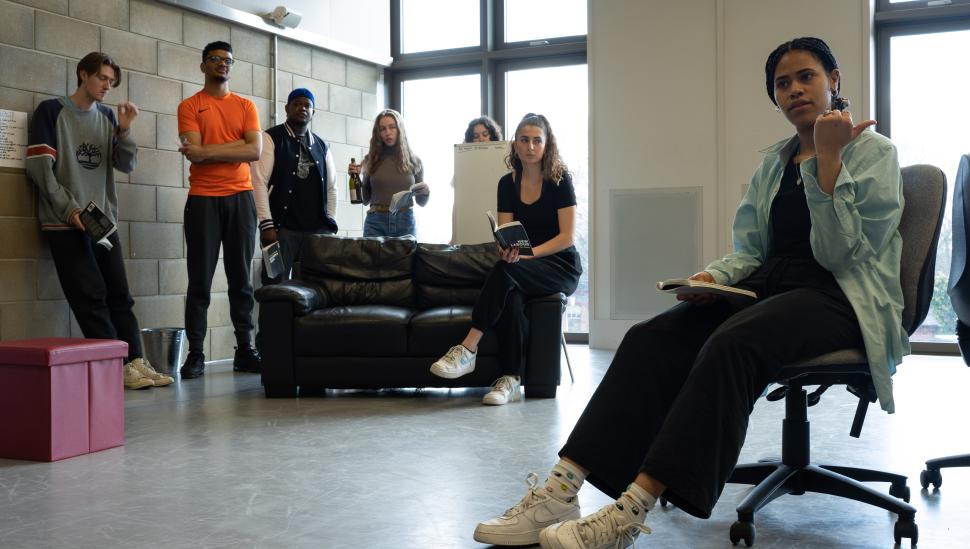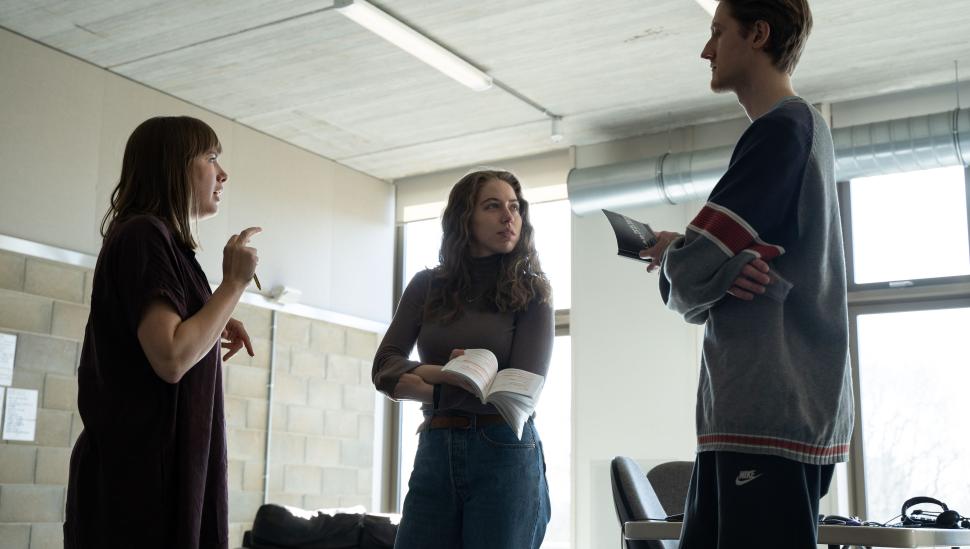Q&A with visiting director Elly Green
LAMDA students collaborate with visiting directors, creatives and technicians on all of our public productions (as well as in many other areas of our courses). Working alongside seasoned professionals provides them with invaluable insights and useful experience of industry working practices.
We recently spoke to Elly Green, who is currently working with our BA (Hons) Professional Acting & Production & Technical Arts students on our upcoming production of New Labour, about the piece, our students and the value of vocational training for actors and technicians.
How did you end up working on New Labour?
I recently moved back to London after 10 years of freelance directing in Chicago. When I got back I started chatting with Vik Sivalingam about what might be a good fit for me at LAMDA and we talked about finding an ensemble-based play. Then LAMDA sent me Marcelo's play, and it felt like fate, as I knew Marcelo many years ago and love his writing. The play immediately spoke to me as an ideal ensemble piece.
Can you tell us about the piece and your approach to the material?
New Labour is a play about a group of young people working in a call-centre all searching in some way for their identity. Alongside the coming-of-age element, it examines how we value or devalue certain kinds of work, and how we quantify "success". It pulls no punches - it shows us people struggling, making bad choices and failing as often as they succeed. But it's also beautifully human, with a wonderfully irreverent sense of humour running through it. My approach has been very much akin to how you might work towards a Chekhovian naturalism, embracing the richness of the characters and mining the text for clues so that the actors have a solid ground of realism to work within, but also the freedom to play within that and make these characters their own.
What's it been like working with LAMDA acting and Production & Technical Arts students so far?
Doing this play with 3rd year BA is a real joy, because they're in confident in their craft at this point, and able to bring a lot to the table. The issues the play brings up are very pertinent to this generation, I think, and so the questions that come up in rehearsal are often personal, so I'm asking to bring a lot of themselves and be vulnerable and open. I think it's great to be able to do that within the safety of the training process. Also our company is working with full contact and intimacy for the first time in a long time because of Covid, so that adds another layer of trust and challenge to the process. For our Production & Technical Arts students, too, this is a massive show - it's a big, full-blooded, full-length play with a lot of prop requirements especially, but everyone has risen to the challenge. I'm very excited to go into tech, and bring the sound and light design elements in too.
What - if anything - is different about directing a play in the context of a drama school?
I try to treat drama-school directing as I would directing a professional show. Especially for 3rd year students, I think it's in their interests that I treat them as professionals and expect the same back. When working with earlier years perhaps my focus would be more on actor-training, but for students about to be out there in the world I try to keep my process as close as possible to how I'd work out in the real world. What you get, as an added bonus, is that there's a lot of team-building that's already been done for you. So these actors are already familiar with each other, so that helps. Also, for the Production & Technical Arts students there is a team of tutors working with them as well, so you have that added support network, which is great.
What do you think is important about actor training?
Giving actors the freedom to learn about themselves as performers in a closed environment, to try things out and gather skills from many different people and processes is so important in the nurture of artists. Also I believe that it's absolutely key to providing the opportunity to experience sucess and, crucially, failure, before they enter the professional world. There's no one right way to make a play, so actor-training gives actors a chance to experience processes which they connect with and others they don't, and learn the skills to be able to do the job either way. I think it's vital to have the time in training to absorb technique and discipline so it's second nature, and equally important is learning the ability to bring your best self into the room every day (which is hard, right? And I think it's a skill we can learn like anything else).
Photography by Sam Taylor
New Labour
Marcelo Dos Santos' political comedy follows the adventures and misadventures of a group of graduates working in a North London call centre. Playing 8-12 April 2022, with matinee and evening performances available. Tickets on sale now.








